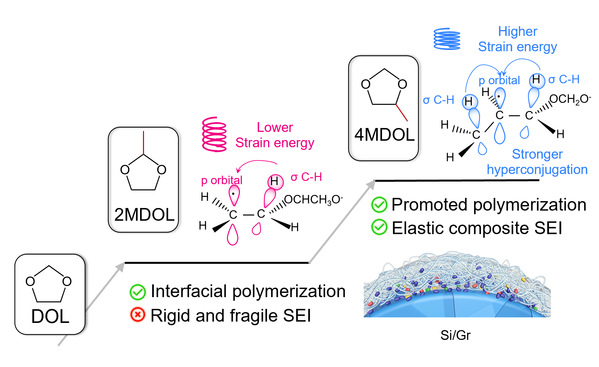
Silicon (Si)-based anodes offer high theoretical capacity for lithium-ion batteries but suffer from severe volume changes and continuous solid electrolyte interphase (SEI) degradation. Here, we address these challenges by selective methylation of 1,3-dioxolane (DOL), thus shifting the unstable bulk polymerization to controlled interfacial reactions and resulting in a highly elastic SEI. Comparative studies of 2-methyl-1,3-dioxolane (2MDOL) and 4-methyl-1,3-dioxolane (4MDOL) reveal that 4MDOL, with its larger ring strain and more stable radical intermediates due to hyperconjugation effect, promotes the formation of high-molecular-weight polymeric species at the electrode-electrolyte interface. This elastic, polymer-rich SEI effectively accommodates volume changes of Si and inhibits continuous side reactions. Our designed electrolyte enables Si-based anode to achieve 85.4% capacity retention after 400 cycles at 0.5 C without additives, significantly outperforming conventional carbonate-based electrolytes. Full cells also demonstrate stable long-term cycling. This work provides new insights into molecular-level electrolyte design for high-performance Si anodes, offering a promising pathway toward next-generation lithium-ion batteries with enhanced energy density and longevity.
Link: https://onlinelibrary.wiley.com/doi/10.1002/anie.202414859



